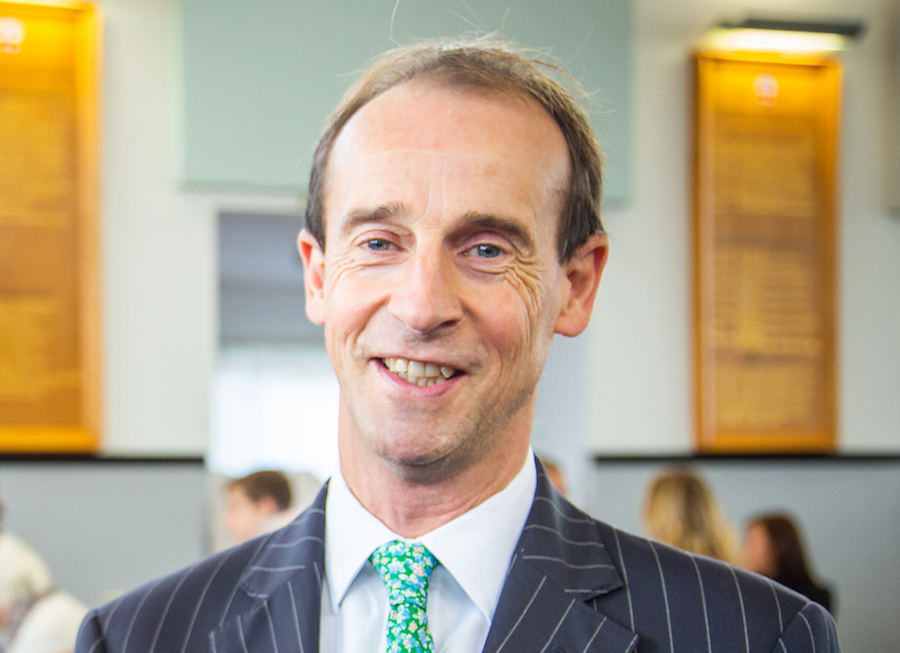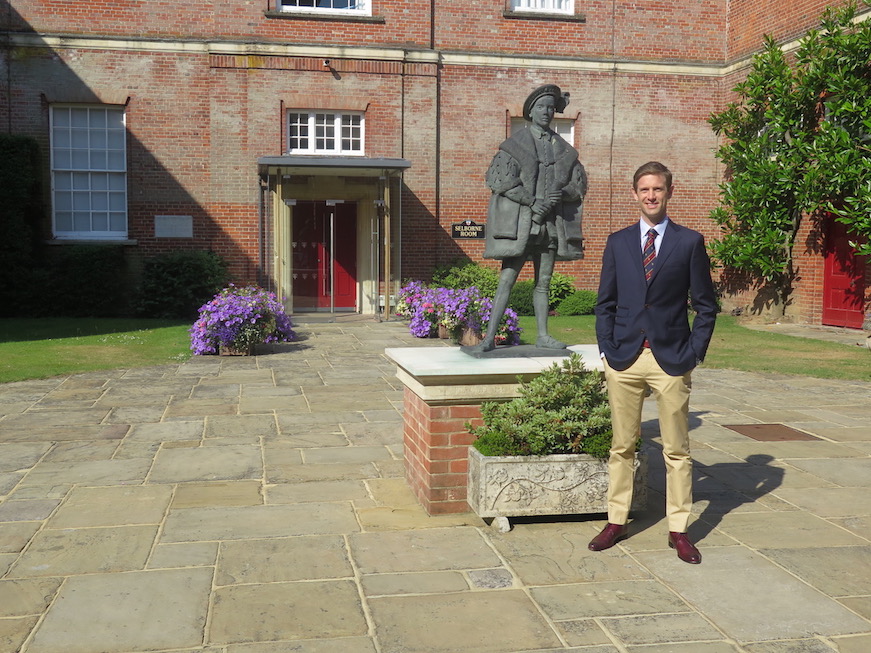Maintaining emotional well-being during lockdown
By
5 years ago


Much has been reported on the arrangements that are being made to ensure children continue to receive their academic education whilst schools are closed due to the coronavirus outbreak. But schools also have an important role to play in managing the emotional wellbeing of their pupils. Pastoral care teams within schools will be working hard to help navigate the pupils through this crisis, especially boarding schools that provide a temporary home for its pupils as well as an academic education.
At King Edward’s Witley, exceptional pastoral care is deeply rooted in the school’s ethos, dating back to 1553 when Nicholas Ridley, Bishop of London, persuaded King Edward VI to hand over Bridewell Palace to house, care and educate the under-privileged and destitute, creating The Bridewell Royal Hospital. Fast-forward to 2020 and the school has been transformed from a Tudor orphanage to a world-class co-educational independent day and boarding school that continues to care for a wide variety of pupils.
Maintaining a routine
For some children, the change in routine can feel threatening, so steps should be taken to ensure a routine – albeit a different one – is put in place. Wherever possible this should follow that of the traditional school day. At King Edward’s Witley, the virtual school day still begins with either a house meeting or a tutor group meeting; lessons take place at the normal times and pupils can still access a well thought-out and varied co-curricular programme. Tutors have an academic supporting role but they are also an important part of the pastoral team, keeping in regular communication with housemasters/ housemistresses about the well-being of all their tutees.
The tutor groups have been reconfigured during this period to better meet the needs of different year groups. A primary focus for the tutors is to ensure that positive, motivational contact is being made throughout the remote learning period to ensure that the school continues to meet the all-round needs of each individual.
Axing of exams
The announcement that all exams were to be cancelled is likely to have triggered a maelstrom of emotions as pupils come to terms with the news, and what it represents to them.
‘There is understandable disquiet, discontent and, then a certain sense of anti-climax as pupils realise they will not be able to test themselves by the same yardstick as previous generations of children,’ says Mr David Corran, King Edward’s Witley’s Deputy Head and Designated Safeguarding Lead.

‘Not surprisingly,’ Mr Corran continues, ‘some children have wanted to disengage when they realise their course is run. In recognition of this, and to maintain the momentum and stimulate motivation, we have developed a bespoke “skills for sixth-form” programme for our GCSE students, offering bridging courses to prepare them for future A-level and IB studies. This programme encompasses a research project, guidance and information on accessing the world of work – including CV development, applications for internships or work experience and interview techniques.
‘For our upper-sixth leavers we have created a “skills for future success” course to help them prepare for the worlds of work and university. The course comprises academic, careers and life-skills guidance, and even incorporates advice on budgeting, conflict-resolution, cooking and household maintenance.
‘Our belief is that action is sometimes the best reliever of stress so, by offering an appealing and valuable distraction that requires their input, we hope to shift the focus away from what is not happening, towards new initiatives that demand their engagement in the here and now. We have also ensured all pupils are aware they can talk to the School Counsellor, pastoral staff, and members of the well-being team to help them work through their anxieties.’
Protecting vulnerable pupils
When news of the coronavirus crisis first began to filter through, the safeguarding and wellbeing teams, as well as housemasters/ housemistresses at King Edward’s Witley undertook a scoping exercise to identify the most vulnerable pupils in the school community.
Pastoral staff are in regular contact with these pupils, both by phone and, occasionally, through house visits. The school continues to work closely with a number of children’s trusts such as Reedham, Buttle UK and Royal National Children’s Spring Board Foundation, to ensure that the children sponsored by these organisations are looked after. This can even include the provision of food boxes for households placed in financial jeopardy as a result of the lockdown.
Mr Corran says, ‘We recognise that for some children, it will be difficult to identify when they are at risk outside the security of the school. For example, some reports state there has been a 33 per cent increase in domestic abuse, but it is unlikely that we would actually witness this situation. The only way that we can help these pupils is to rely on the bonds of trust that have been built up over months and years by pastoral staff so that children will feel able to confide in them.
‘We are working hard with other agencies including Surrey’s Single Point of Access (C-SPA), Early Help Hub and through our recently created triage system which allows us to react quickly and with knowledge of context as soon as a worrying event comes to our notice.’
Benefits of lockdown
According to Mr Richard Davies, head of sixth-form at King Edward’s Witley, there are some tangible benefits, especially to sixth-form pupils who have had to adapt to the current situation. ‘Apart from the new-found resilience that many pupils will have acquired, the most significant learning will have taken place in self-management and organisation,’ Mr Davies reveals.

‘Moving from an environment in which pupils sit down in a lesson and listen to the teacher for instruction, to one in which they have to navigate online learning platforms, such as Zoom, Google Docs and WhatsApp project groups, across multiple time zones, requires careful planning and effective prioritisation in order to adhere to deadlines. Pupils these days tend to be “digital natives”, but paradoxically, the transition to a fully digital learning environment may have helped them realise the importance of that most fundamental human characteristic of community; not only in terms of face-to-face contact and laughter in a classroom, but also from an altruistic perspective that resonates with the school’s original mission – recognising who else is in my physical community and questioning what might I be able to do support those less fortunate?’
The future
At this point, no one can predict the future learning landscape, but Mr Corran believes there will be a lasting impact following recent events: ‘The impact of this time will persist well beyond any return to normality. We intend to expand our counselling provision, and, through a thorough audit of the school’s well-being provision, we will be prepared to meet what will no doubt be an unprecedented set of demands on pastoral staff when school returns.’
King Edward’s Witley’s Top tips for parents
The following are four top tips for parents to help them protect their child’s well-being during coronavirus lockdown:
- Children will take their cue from adults: our reaction to these extraordinary events will determine theirs, so be cheerful. As Michel de Montaigne wrote, ‘The most certain sign of wisdom is cheerfulness.’
- Keep to routines
- Maintain variety by ensuring that weekends are different from weekdays
- Communicate the importance of adhering to kindness, empathy, imagination, courage and resilience during these difficult times
Find King Edward’s Witley’s online listing here
Read an expert’s advice on empowerment and positive mental health here



